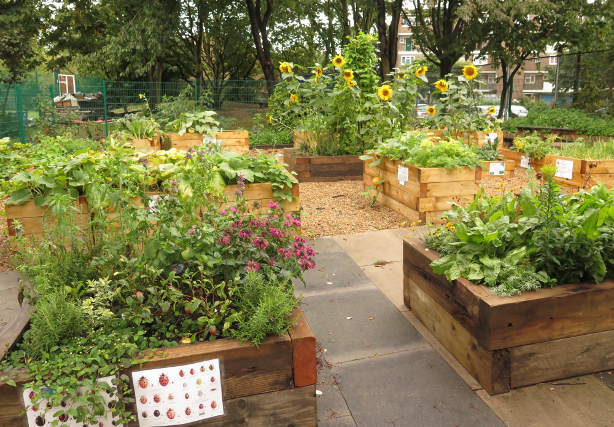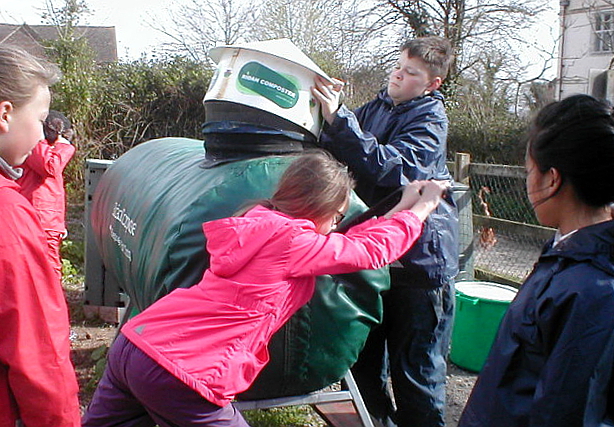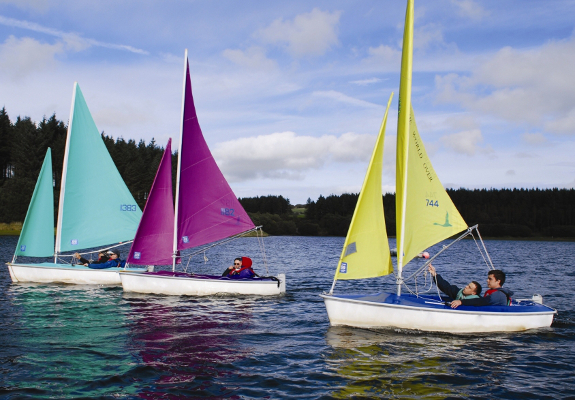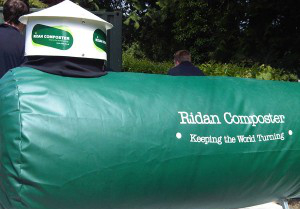Ridan Composter case studies
Ridan Food Waste Composters are enabling customers across the country to improve their environmental sustainability, reduce their waste disposal charges, lower their carbon emissions, and show children (and adults!) just how easy it is to compost their food waste!
Heswall Primary School

Background
Heswall Primary is a popular and successful school close to the centre of Heswall and bordering on the beautiful Barnston fields. This 200 pupil school is blessed with wonderful grounds including a huge field with amazing woodland areas - surrounded by trees and plants. They ensure their children consistently use the grounds and as a result have been named as an Eco-Schools Ambassador and won a Wirral Eco Award in 2014 in recognition of their waste management activities.
All pupils take part in outdoor lessons - part of which involves digging over raised beds, adding compost and planting vegetables, through to harvesting in the autumn. Pupils in Year 5 and 6 also take responsibility for taking food waste from our school kitchen each day (approximately 10 litres) and adding it to the composter.
Heswall did not receive any grants to support the project. It was their aim to pay for the composter through the savings they make on bin costs and not having to buy compost.
Results
- The school recycles 50 litres (25kg) of food waste per week (1.3 tonnes per year)
- £35 per month is saved by no longer needing food waste collections (£415pa)
- Compost is used in the raised beds, saving £150 per year
Feedback
Our Ridan Composter is working very efficiently; a local carpentry shop is providing wood shavings and we are adding about 10 litres of food waste every day to the composter. Our landfill costs have decreased significantly and we use the compost on our raised beds. Vegetables are then used by our kitchen to produce exciting recipes for the children to try such as apple and blackberry sponge, spicy potato wedges, pea and ham soup, and plum jam - served at our toast club!
John Roberts, Headteacher.
Ashley C of E Primary School

Background
Highly pro-active and driven in terms of being environmentally friendly and sustainable, Ashley School in Surrey, has 420 pupils and aims to provide a happy, caring, Christian environment where children develop independence and self-confidence whilst achieving their full potential.
In 2009 they received the highly acclaimed Ashden award for their efforts in sustainable energy. In 2012 they were awarded the European Commission funded U4 Energy award for education on energy saving and attended the European Awards Ceremony in Brussels. In January 2015, Ashley was proud to be one of only nine schools in the country to be awarded Eco Schools Ambassador School position, which was complemented by the addition of a Ridan Composter in May 2015.
The pupils get stuck in with collection of food waste, growing fruit and vegetables, right through to cooking and tasting the produce grown in the compost.
Results
- 150 litres (75kg) of food waste is recycled each week
- A grant from Surrey County Council helped fund buying the equipment
- 8,000 litres of compost is generated each year
- Making their own compost saves the school £700 per year
Feedback
Our Ridan is a robust and versatile vehicle which takes all of our school kitchen waste and recycles it into fantastic nutrient-rich, organic growing medium for the growing project at the school.
Darrel Leggett, Head Gardener.
Farms for City Children

Background
City children are offered a life changing experience by living and working on a real farm for a week - a scheme founded by Michael Morpurgo. Working with animals and learning about different plants and crops allows children to see where their food comes from.
With the installation of Ridan Composters at two of the farms, children can appreciate the complete nutrient cycle, and these farms can recycle all their food waste onsite - providing education and saving money.
Nethercott House in Devon and Treginnis in Pembrokeshire both use a Medium sized Ridan. Currently composting 180 litres of food waste per week at each site, all kitchen waste plus 7 days' worth of plate scrapings are being composted every week.
Results
- Each farm recycles over 6 tonnes of food waste per year
- Operating costs are just £2 per week for the wood pellets
- £50 per month is saved by no longer needing food waste collections (£600pa)
- Less compost is bought for the gardens and vegetable patches
- Payback period was approximately 3 years
Feedback
It is rare these days to buy a product which exceeds your expectations like the Ridan; food waste to usable compost takes just 10 weeks. Our tomatoes have been grown in the compost produced and are bigger and better than ever before, a lovely fine potting compost!
Barry Searle, Farm Manager.
Colyton Grammar School

Background
A mixed selective secondary school located in rural East Devon with 819 students and grounds in excess of 18 acres. Students conducted an audit of the school's waste and, after tackling the top two resource streams of plastic and paper, a second audit showed that the largest volume of waste was now coming from the school canteen in the form of plate waste.
The "Green Society" was then involved with fact finding and planning for a composter, including a visit to a primary school that already had a Ridan composter to see how it worked. Once the Ridan was purchased the students acted again to run a campaign to inform the rest of the school how things would work with food waste collection and the production of compost.
Grants from "Cutting your wasteline" (Devon County Council) of £1000, and from the Parents' Association of £500 helped the school to purchase the Ridan equipment.
Results
- The school recycles 4.5 tonnes of food waste per year (approx. 86kg/week)
- £100 per month is saved in bin lifts (£1,200pa)
- Around 5,400 litres of compost produced per year
- £400 saved per year on buying compost
Feedback
As a school of conscientious, environmentally-aware students, we at Colyton really appreciate the value of being able to reduce our waste output. We are constantly aiming to become more sustainable: the addition of the Ridan composter to our waste system has greatly contributed. The bonus of compost for use on our grounds very much contributes to the pride that students here take in the school: a significant part of Colyton's atmosphere is lent to it by the green spaces and flower beds that are prominent across the site.
Y11 student and member of the Green Society.
Calvert Trust

Background
The Calvert Trust Exmoor is a residential centre providing challenging outdoor activities for people with disabilities. It is located in an area of outstanding natural beauty on the edge of Exmoor National Park, next to Wistlandpound Reservoir. Providing food for over 4,000 residential guests and 5,000 day visitors a year, there can be a lot of food waste.
A Ridan system was installed in May 2010: one large Ridan Composter and three maturation boxes. All kitchen and plate waste from the cafeteria and tea rooms are being composted daily. They get their wood chippings provided free of charge from local tree surgeons, and then used the matured compost on their gardens.
Results
- Over 12 tonnes of food waste recycled per year
- £70 per month is saved in food waste collections charges (£840pa)
- Payback period was approximately 3 years
Feedback
The Ridan Composter is working fantastically and it is incredible to see just how much food waste it can recycle, creating rich compost for our gardens
Tim Harris, Director.
HMP Channings Wood

Background
A category C men's prison, HMP Channings Wood houses around 750 offenders and provides them, plus 350 staff, three meals per day. To recycle the quantities of food waste produced by the kitchens, Channings Wood required two large Ridans and six maturation boxes. The Ridan is operated by inmates as part of a prison waste recycling initiative, and is located in the prison grounds adjacent to the kitchen and vegetable garden.
Results
- 24 tonnes of food waste is composted every year
- £200 per month is saved in food waste collections charges (£2,400pa)
- No running costs as local tree surgery waste is sourced for free
- Payback period was approximately 3 years
Feedback
By installing the Ridan Composting system which is operated by the inmates, not only have we raised awareness of how much waste we produce on site, we have also created a keen interest in how best to reduce and recycle it. The Ridan has created a big stir and captured a keen following amongst both inmates and staff due to its simple yet effective operation. Financially the Ridan system will pay for itself, but morally it's priceless.
Pete Lewis, Facilities Manager.
Coast Café des Artistes, Worthing

Background
Situated at the eastern end of Worthing's five 5 mile beach, Coast Café serves food and coffee along with beautiful views of the sea, beach and pier. Coast Café and Creative Waves conceived a joint community project - the Café needed a sustainable solution for their food waste, and Creative Waves needed compost for their community project, Bugcycle Garden. Installing a Ridan Composter solved both of their needs, and the project was funded with a grant from Worthing Council.
The Sportsman's Inn, Exmoor

Background
A traditional old English Inn located high up in Exmoor National Park, the owners are conscious of the impact of their business on the local environment. They specialise in good local food and, with the addition of solar panels and a Ridan Composter, they are keen to reduce their carbon footprint.
Results
- The pub recycles around 6 tonnes of food waste per year
- No running costs as local tree surgery waste is sourced for free
- £60 per month is saved by no longer needing food waste collections (£720pa)
- Payback period was approximately 3 years
Feedback
The Ridan is working really well and having checked every day for the last 3 weeks, we are consistently registering internal temperature of 55-65 degrees. The compost that has been generated has a rich dark brown look, great for the vegetable garden.
We had a serious hedge cut last week, with the contractors producing enough wood chippings to service the composter for some years. As a result we have no got rid of one 1100 litre 'Eurobin' [for food waste] and have a standard size (domestic) wheelie bin instead, which will save me £60 a month!
Martin Macro, Manager.
 Applied Waste Techniques
Applied Waste Techniques